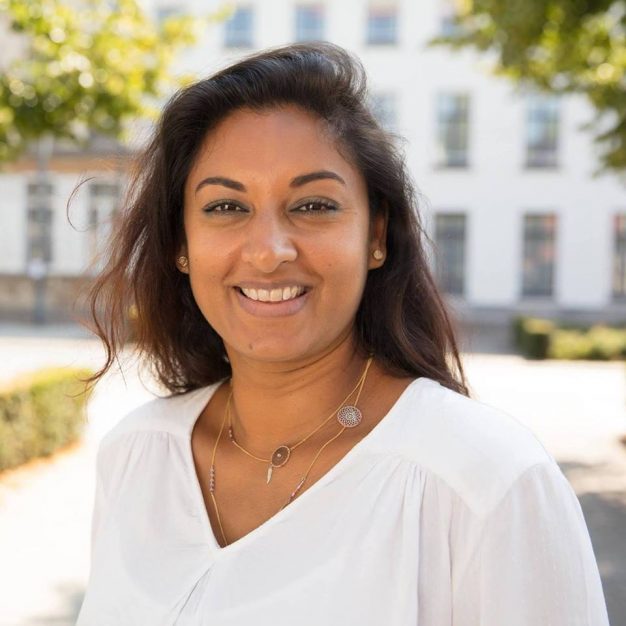
The city of Antwerp is ‘taking sustainability seriously’
Jinnih Beels is Antwerp’s Alderwoman for Education, Youth and Integration. In this interview, she outlines the city of Antwerp’s plans and policies regarding sustainability and child friendly practices. Beels also argues, the city of Antwerp is “taking sustainability very seriously.” Before her current position Beels had a remarkable career with the police. She worked as a police commissioner in Mechelen and was the head of the diversity division for Antwerp Local Police.
During the Child in the City International Seminar: Children in the sustainable city Beels will be part of the plenary sessions on both days including a panel discussion.
How would you describe Antwerp from the point of view of a child? How is the city working on making public space more child friendly and what are the challenges?
Antwerp is a beautiful and vibrant city to live in. It offers a broad variety of leisure activities and festivals for children and youngsters, and we have many youth organizations and sports clubs here.
During the next six years, one of our priorities is to create more public space for children, and that is quite a challenge.
First of all, we want them to grow up in an environment that is safe. Our campaign We play in the streets and the concept of play streets are a good example. We give local residents the opportunity to ban traffic for a day or an afternoon, to make sure that children can play and run about freely. Furthermore, we are currently checking how we can maximise the use of our playgrounds and youth centres. We want to make sure that they are being used as often as possible and that they are safe and clean.
Another example is the school streets, where we ban cars during peak hours to guarantee the safety of the students on their way to and from school.
For children, and especially for the ones that don’t have a garden, it’s important to create public space where they can play freely, both in the open air and inside buildings. We need to give them every opportunity to grow, discover and develop their talents. In this process, we make sure to listen to what they have to say and to what their needs are.
How is Antwerp working on making the city more sustainable?
We are very ambitious when it comes to climate policy. We already managed to reduce our greenhouse gas emissions by a quarter compared to 2005, we plan to halve them by 2030 and aim to have a climate neutral city by 2050.
We plan to realise these goals by taking measures in a number of areas. We will be using the waste heat of the Port of Antwerp to heat buildings via underground heat networks. We launched a Clear Air Zone, which means that diesel cars are banned. We will cover the ring road and make the roof into a green area so the city air will be cleaner. We aim to ban more cars from the city by investing in public transport and bicycle paths. The list goes on, so as you can see: we are taking sustainability very seriously!
Are there already made crossovers to make Antwerp child-friendly and sustainable in one step? And how are the children and youngsters themselves involved?
We are currently working on a project with five schools that are located in an area where there is quite a bit of pollution and the air quality is poor. In collaboration with these schools, we are trying to find ways to make the situation better. The results of this research will then, of course, be used to help other schools.
Furthermore, we encourage schools to become EcoSchools. We ask the staff to educate their students on topics such as sustainable materials, energy and recycling. We support the schools by giving them advice and organising training and workshops.
Besides working closely with the schools, we also encourage children and youngsters to get involved. The school strikes have shown us that they care and that they are well aware of what is happening to the climate. We are currently working with Youth for Climate and they are helping us design a brand new Antwerp Climate Plan. We also gave them the opportunity to organise a Climate Day, and they were made responsible for the entire programme.
What do you expect to learn from the seminar?
I hope to get inspired and to learn about ways to improve our youth policy. I look forward to learning more about existing projects that link sustainability to the well-being of our children. It may sound like a cliché, but our children are our future so we need to make a serious effort and we need to involve them as much as possible.
Don’t miss the Child in the City International Seminar 20-21 May 2019 in Antwerp, Belgium. It is a chance to learn and exchange insights with experts and policymakers working to make the urban environment more sustainable and child friendly. Spaces are limited so register today to secure your seat. View the programme and click here to register.




